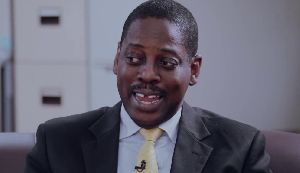Heads of defunct fund management firms are set to meet in the coming days to discuss the distribution of an initial GH¢700 million from the government’s GH¢1.5 billion bailout package.
This funding by the government is part of a GH¢9 billion allocation aimed at supporting collapsed institutions and individuals affected by the banking sector cleanup in 2017.
As reported by myjoyonline.com, the Director General of the Securities and Exchange Commission (SEC), Rev. Daniel Ogbamey Tetteh, reported that over GH¢4 billion has already been disbursed to claimants.
“The GH¢4.46 billion released includes payments to all validated claimants—individuals, institutions, churches, hospitals, and schools. The funds have been distributed in the form of bonds, allowing people to access their money,” he clarified.
Rev. Tetteh added that the GH¢700 million will be placed into a management fund for distribution.
He explained that managers of this fund will soon meet with the heads of the collapsed firms to outline the terms, processes, and timelines for accessing these funds.
“The GH¢1.5 billion will be released in three phases: GH¢700 million, GH¢400 million, and another GH¢400 million. It’s important to note that the funds do not go directly to the SEC.
“Instead, they are managed by a special purpose vehicle called the Ghana Amalgamated Fund. This fund handles all bailout payments, and investors must sign up for the government bailout before becoming clients of the AM Fund. The fund will then manage payments based on investor requests,” he explained.
What happened?
In 2017, the Ghanaian government, led by the Minister of Finance, Ken Ofori-Atta, initiated a reform of the banking sector.
This overhaul resulted in the number of banks being reduced from 34 to 23. Additionally, 347 microfinance institutions, 15 savings and loans companies, and eight finance houses had their licenses revoked due to various corporate governance issues.
The cost of this intervention by the state, not including interest payments, was estimated at GH¢16.4 billion from 2017 to 2019.
However, the government later reported that the total expenditure on the banking sector clean-up reached approximately GH¢21 billion in 2020.
Several financial institutions that were affected by the license revocations have challenged the government's decision in court, and these legal proceedings are ongoing.
ID/BB
Watch the latest edition of BizTech below:
Ghana’s leading digital news platform, GhanaWeb, in conjunction with the Korle-Bu Teaching Hospital, is embarking on an aggressive campaign which is geared towards ensuring that parliament passes comprehensive legislation to guide organ harvesting, organ donation, and organ transplantation in the country.
Click here to follow the GhanaWeb Business WhatsApp channel
Business News of Saturday, 14 September 2024
Source: www.ghanaweb.com

















